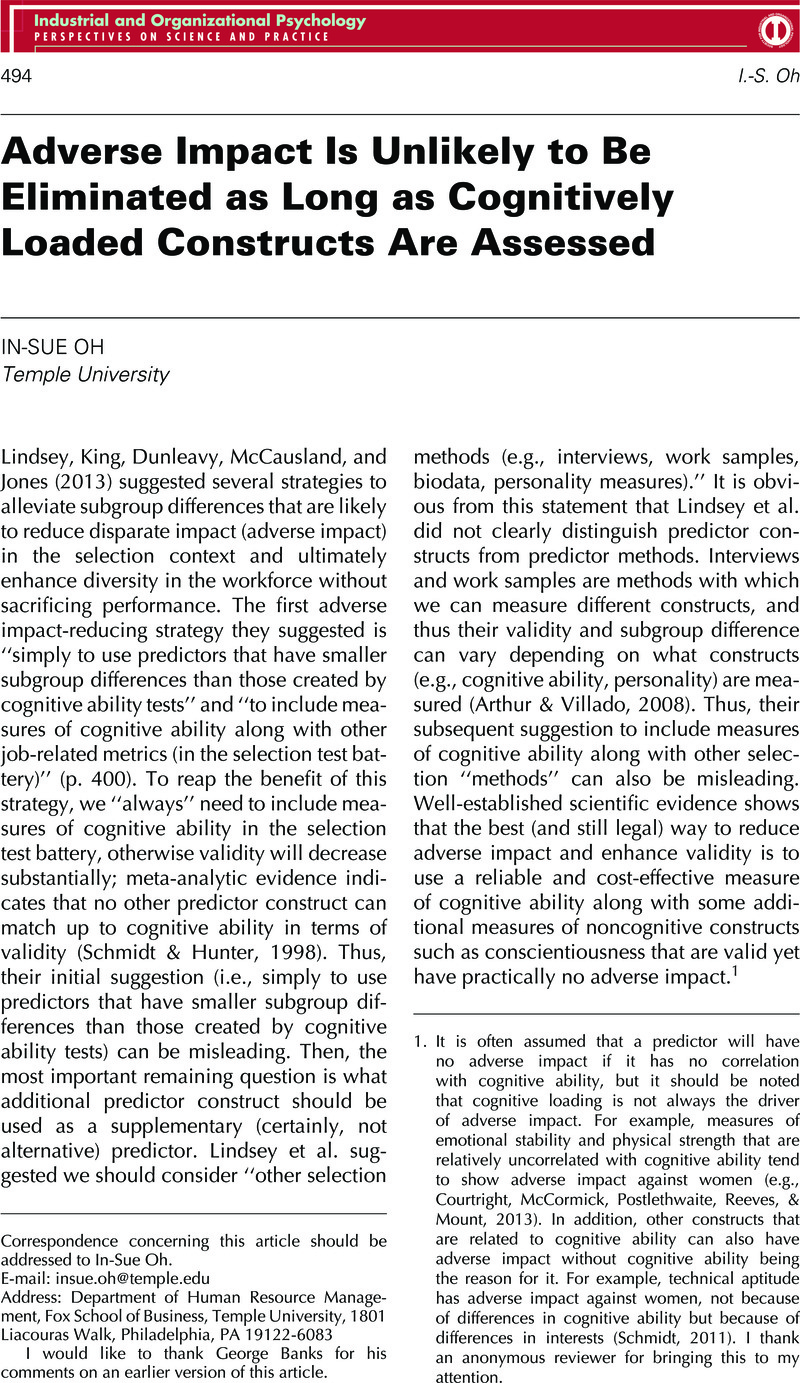Crossref Citations
This article has been cited by the following publications. This list is generated based on data provided by Crossref.
Arthur, Winfred
Keiser, Nathanael L.
Atoba, Olabisi A.
Cho, Inchul
and
Edwards, Bryan D.
2021.
Does the use of alternative predictor methods reduce subgroup differences? It depends on the construct.
Human Resource Management,
Vol. 60,
Issue. 4,
p.
479.
Oh, In-Sue
2022.
Perfect is the enemy of good enough: Putting the side effects of intelligence testing in perspective.
Industrial and Organizational Psychology,
Vol. 15,
Issue. 1,
p.
130.



